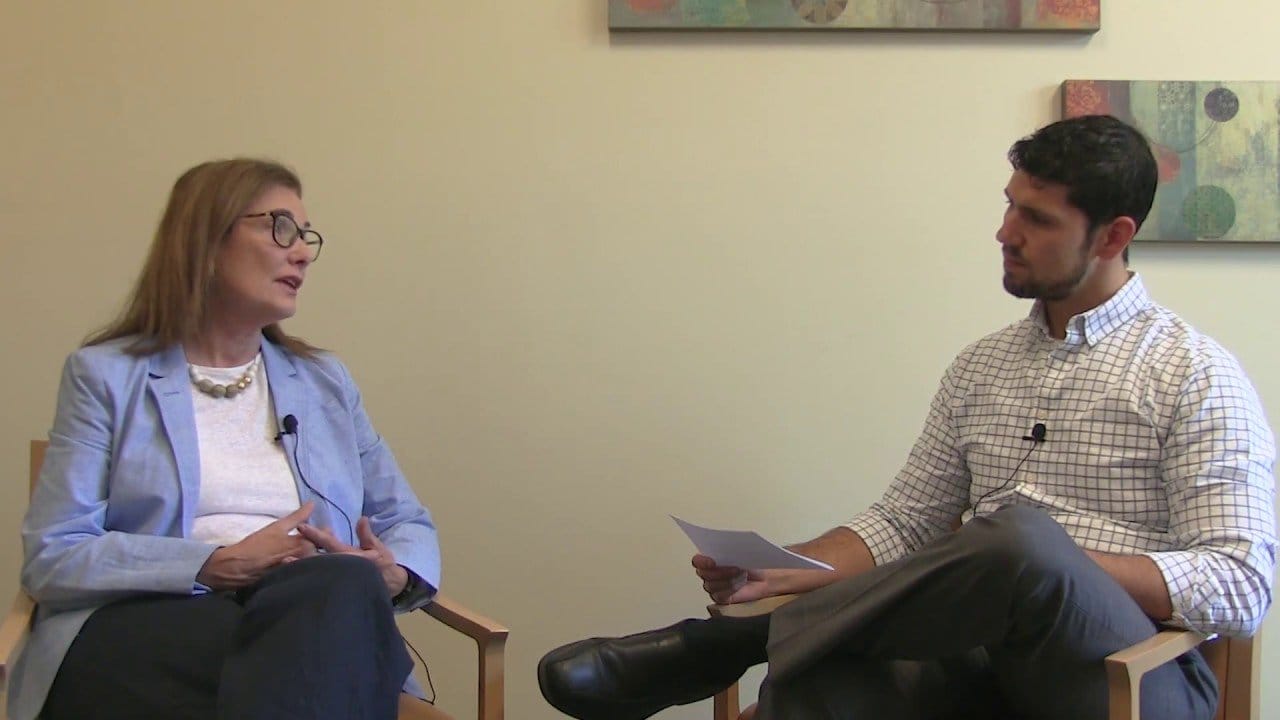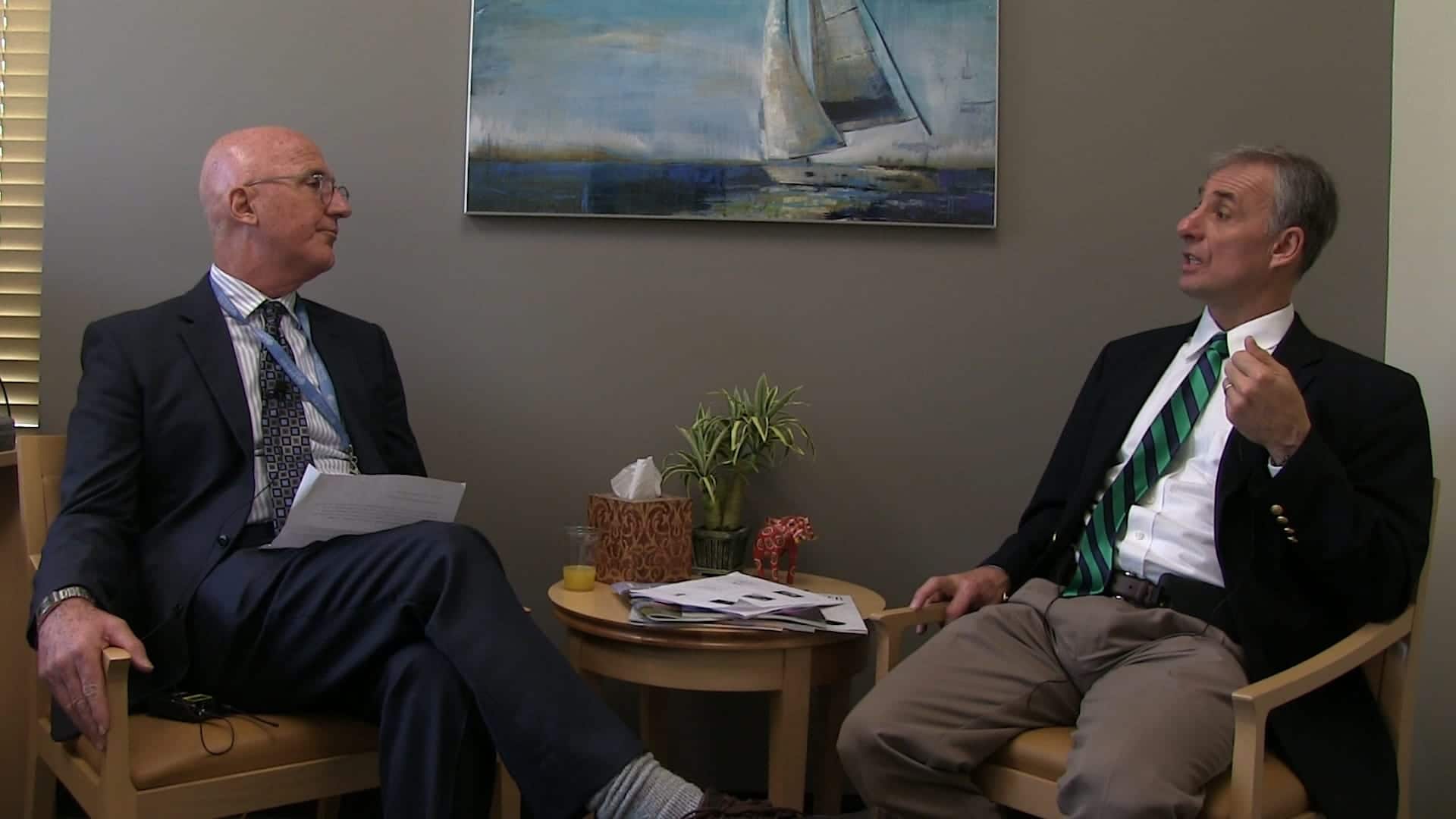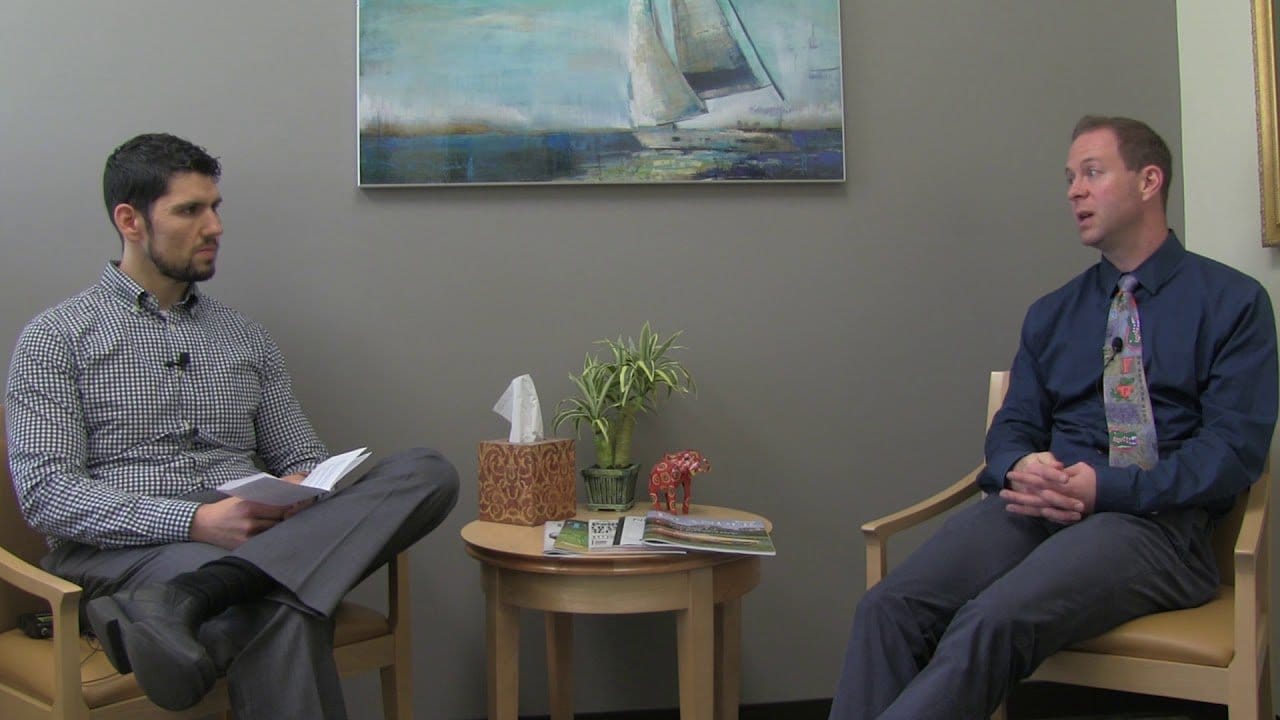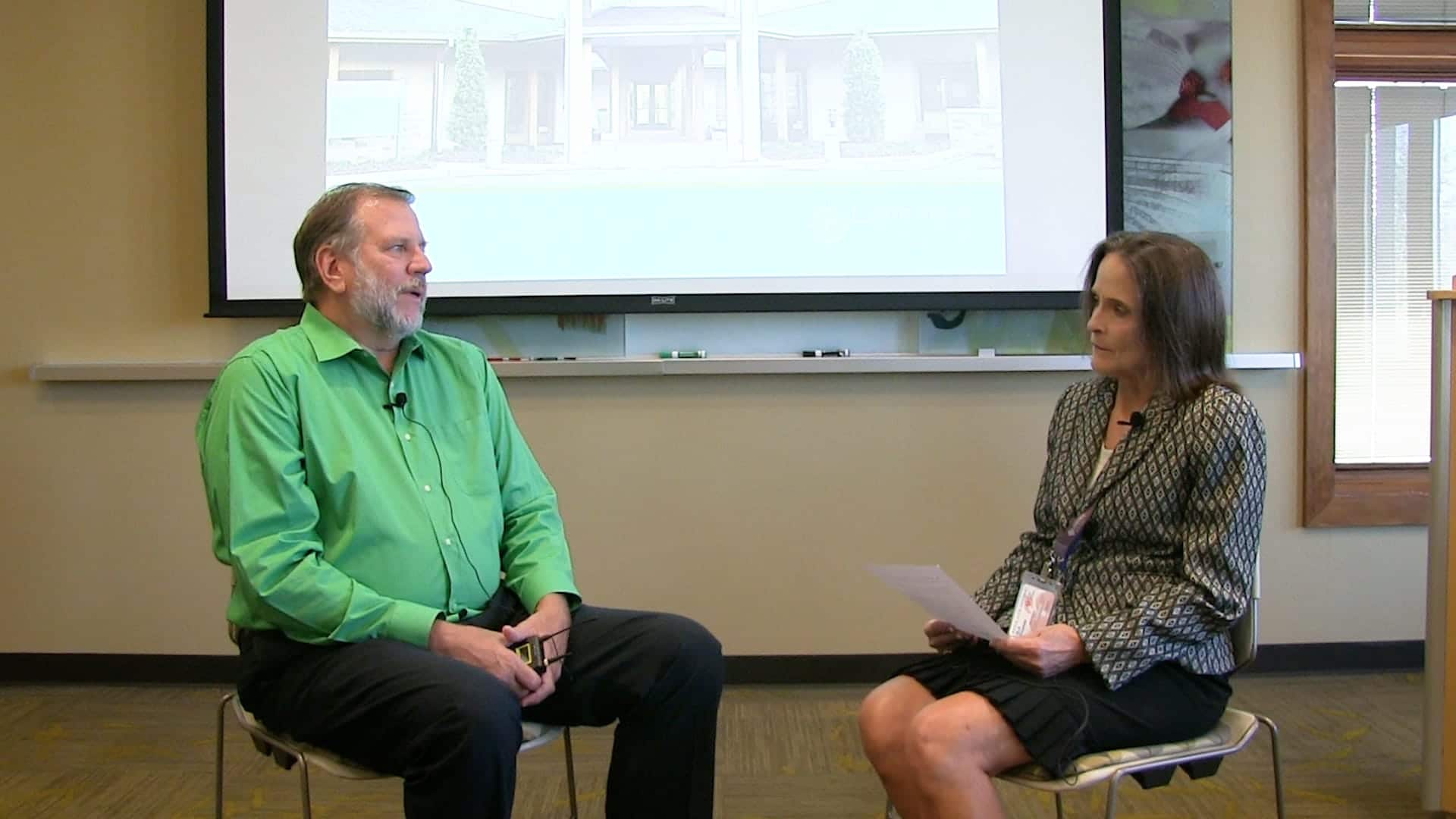-
- Gina is joined by Carver Brown in this podcast as he discusses the Back to Basics model of the 12-step program as well as Pine Grove Treatment center.
Interview
Gina Thorne: Hello everyone, this is Gina Thorne and welcome to the Lakeview podcast series. I am very pleased to be joined with Carver Brown at Pine Grove Behavioral Health. Welcome, Carver.
Carver Brown: Hey everybody!
Gina: I’m real excited to have you here at Lakeview Health. We are fortunate to host you for a Back to Basics marathon, if you will. Your presence here has been really great, being able to present to our clinical staff this afternoon and then talking to our patients and alumni this weekend, we’re really excited about it. So, before we get started, we’re just really interested in learning more about what is Back to Basics and how does it work?
Carver: Well Back to Basics is written by my friend, Wally Paton, and it started as a book. Wally is an AA archivist and he is Dr. Bob’s archivist and what he did was he found the original format of the AA beginner meetings where newcomers took all 12 steps in four 1-hour sessions. So Wally put the whole program together for people to take the steps even in a day, and he started to shrink it down and he can take people through the steps in a couple of hours, we’ve even seen him do it in one hour. It seems impossible, counterintuitive, and it wasn’t until I took a trip out to Austin to meet him, to go through the workshop, that it finally made sense. Gina: So it’s kind of a fairly unorthodox thinking process, even though it was exactly how it was supposed to be back in the 1940s but today people look at it as though it’s impossible to do.
Carver: It’s true! It’s like the original format got lost over time and people have slowed down the step process. But it was interesting; my sponsor took me through the steps quickly and he was old school New York AA, and so his lineage, he could trace all the way back to Bill Wilson. And he never heard of Back to Basics, he just knew that we took the steps quick. Do you want to feel better quick, or do you want to wait and feel better later? I was ready to feel better now.
Gina: So you’re the current alumni coordinator for Pine Grove. How did you get into the field of addiction treatment?
Carver: Gosh, through my own personal journey. I was an executive vice president of a food service company, deeply addicted, and my life had come crashing down around me, and I put myself in treatment, they referred me out to Alcoholics Anonymous, I met a sponsor, I started working the steps, and my life started changing. I ended up leaving that field and I went through a period where I was lost for a period, I spent two-and-a-half years as a yoga instructor, how about that, and then after that period, I kind of felt the pull to get into the addiction field somehow. I started slow, worked at an IOP and then Pine Grove recruited me at an AA meeting. I guess they heard me speak or something and said, “We want you to help further our alumni program” and it sounded fulltime so I took it. But I didn’t know what to do. I didn’t have a clue; I didn’t know how to do it. Gina: Well clearly your passion and commitment to recovery and working with people to help them stay sober is what drew them to you and you can feel it, so that’s really great. We need more advocates like you in this field. You mentioned Pine Grove. What is it about Pine Grove? Tell me a little bit about their services and what they do.
Carver: Pine Grove is a place, it’s called, “One place, many solutions.” We’re part of a hospital, so first of all, that’s kind of unique, we’re part of a non-profit hospital, so we are a non-profit treatment center, and we are like five places at once. There’s a men’s program for addiction called Next Step, there’s a women’s center, and that’s for chemical addiction as well as for a secondary diagnosis of eating disorders. Then there’s a sex addiction track called Gratitude, for men and women, that’s residential, that’s an amazing program. Then there’s a program called Legacy, that’s for the elderly, then we’ve got the Pep program which is for professionals, it’s not for addiction, it’s behavioral. Then there’s an evaluation center where we do three-day residential evals, when doc’s aren’t sure what they’re dealing with and they need to send somebody down to be checked. We can also handle the medical requirements of what anybody needs and we are able to refer in between different centers. So when we spot something else, they might get referred to the Pep program for behavioral stuff, or if we spot sex addiction they might move over to the Gratitude program, so it’s really an amazing thing; its different campuses for the different programs.
Gina: So for those folks that are listening in the northeast, they’re probably thinking, “Where is this program located?” They hear your accent so I’m sure they’re wondering where it might be. Where are you all located? Carver: We are in Hattiesburg, Mississippi; it’s in south-central Mississippi, equidistant between Jackson and the Gulf Coast, or Jackson and New Orleans. Right in the middle down there.
Gina: How long have you guys been around?
Carver: Oh my gosh, we are just celebrating our 30th anniversary! And I’ve been there for six years, and Pine Grove started as they just wanted to treat addiction in the hospital, so we started as a little separate area, treating addiction within the hospital, and it’s just grown and grown and grown and become this massive thing.
Gina: Well you’re definitely a strong foothold in the industry and people have great respect for the work that you do across all the spectrums which is terrific. What do you find is the most challenging thing people face in early recovery, especially when leaving residential treatment? I want to tie this back to Back to Basic, so what do you think is the most difficult issue people are facing when they leave residential treatment?
Carver: That’s a good question. You know, each of us, when you come out of treatment, you’re gonna come nose-to-nose with your disease in some form or another, and it generally doesn’t take too long. You know, you’re gonna have a temptation, you’re gonna have an argument with something, or something didn’t go your way, and you’re gonna have this crossroads where you’re literally stading in a place where you go, “Yup. That’s what I used to act out over,” “That’s when I used to drink,” “That’s what I used to use over.” And I think what the challenge is, is to have the patients, at discharge, prepared and expecting that sort of crossroad decision. And we try to instill in them, with the treatment plan that gets them to a place where they know instinctively what to do. To apply the strategies of the steps in their life, that God willing, that they’ll know to pause and pray, they’ll know to get on the phone and reach out to people in recovery, to immediately get to a meeting and share about it, that they’ll apply these strategies and see how they’ll maneuver through these difficult times and stay sober. Gina: And obviously just utilizing the steps and doing it the way with Back to Basics where it takes the fear out of it, which is so important.
Carver: It’s a beautiful thing that we get to take them through the steps in a day and they get to see it. I talk about seeing recovery as a map instead of a long, linear process, and you’re seeing how all the steps link together, you’re making spiritual decisions within the workshop, you’re doing an inventory, you’re sharing an inventory, you’re talking about the amends process, and you’re preparing yourself for this so when you go to 12-step meetings and you go to sponsor, you know what to expect.
Gina: Right. That sounds great. So if people wanted to access resources at Pine Grove, if they needed to talk to somebody there, how would they get in touch with you?
Carver: The best way, well, our website really drives everything. So if you go to www.pinegrovetreatment.com, that will access you to all of our services, you know, everything that we have to offer. And then to talk to somebody, our call center is 24 hours a day, and that is 888-574-HOPE.
Gina: Very good. Well thank you, Carver, for spending time with us here at Lakeview. And for those of you that are interested in learning more about Lakeview Health, we invite you to visit our website at lakeviewtreatmentcenter.com or you can reach us at 866.704.7692.




